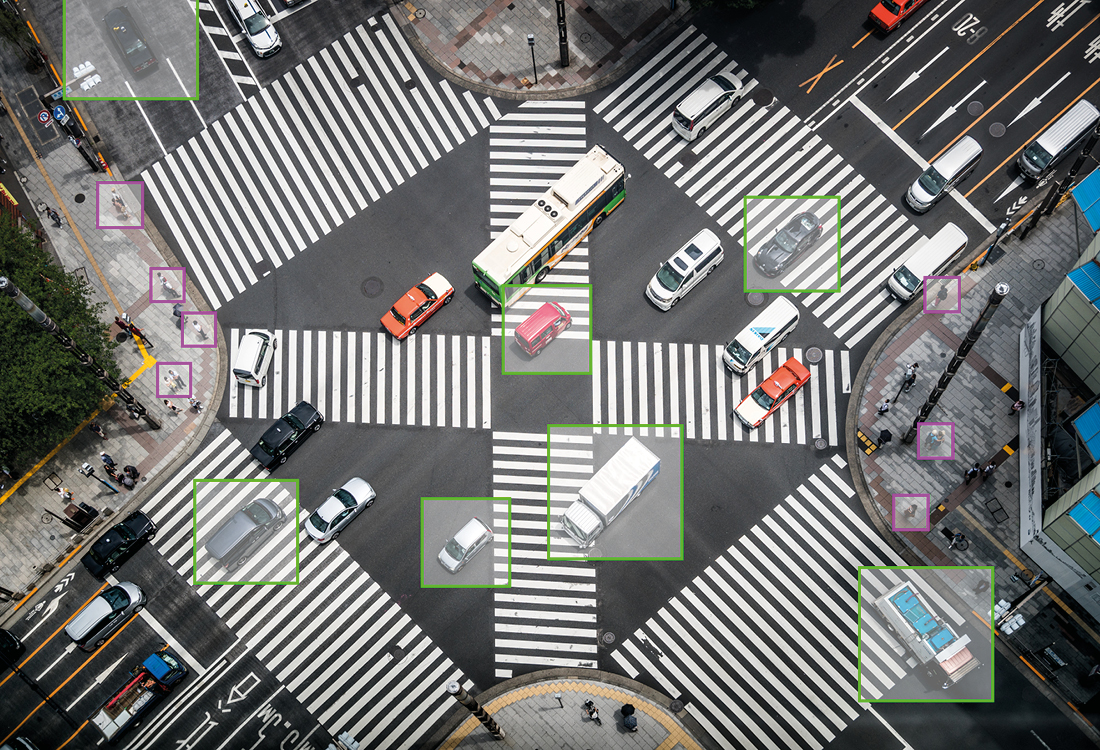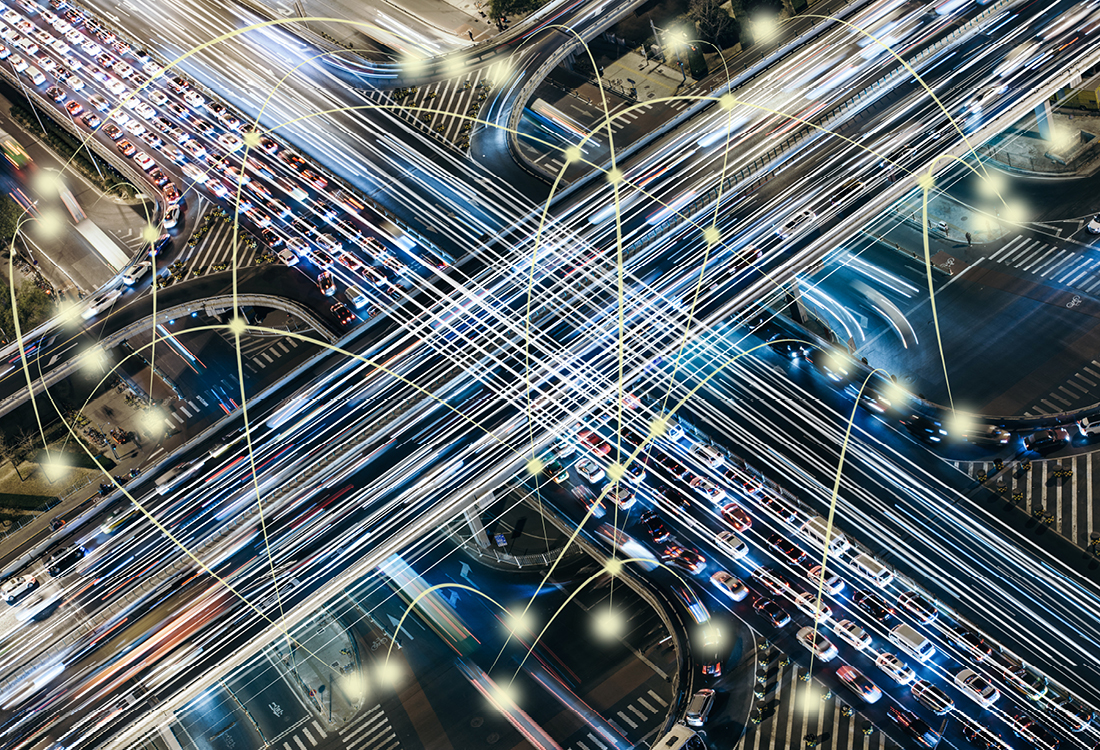Cloud infrastructure and a new approach to data is building the city of the future.
Smart cities are quickly becoming a reality as advanced networking and cloud computing are developing to become the core infrastructure for not only enterprises, but the society we live and work in. From American to European civic organizations, utilities providers and leading-edge technology companies are partnering to develop the smart city of the future.
The UK’s Department for Business, Innovation and Skills, describes the smart city as a process rather than an outcome and says smart cities have increased “citizen engagement, infrastructure and digital technologies,” which make “cities more livable, resilient, and better able to respond to challenges.”
“There is nothing really new here. Since we have been producing mass transport solutions like trains and cars, we have always had to find a way to manage that, going back to the invention of the traffic light,” says Smart City expert and former CIO, Barney Smith. Smith is the founder and CEO of Perform Green, an advisory business that is helping cities adopt and benefit from smart city technology.

"In the midst of a heatwave in Dhaka, the capital city of Bangladesh, a Facebook campaign reached 3.9 million people, providing vital information and reducing the burden on the city."
Smart Infrastructure
Smart cities will use digital technology to connect the various elements of infrastructure that make a city a place to live and work. As a result, technology will become the superstructure that infrastructure will rely on to operate.
San Leandro's chief technology officer, Tony Batalla, explains: “We identified areas where technology will play a key role in helping the community to reach its goals: public safety, transportation, broadband service, and energy/environmental sustainability.” The American west coast rivals with cities like Barcelona, Bristol, London, and Singapore in terms of accelerating and leading smart city adoption.
“More broadly, mobility—public transportation along with ride-sharing, scooters, bikes, pedestrian routes and trails, and eventually autonomous vehicles—is likely to dramatically change the experience of getting from point A to point B over the next 10 years,” CTO Batalla says of how citywide transport will be changed.
“As the technology is exponentially growing in terms of its penetration and power, the data is developing, and then we are finding new ways of harnessing and applying how a city works. By integrating solutions rather than stand-alone solutions for one particular challenge, we can achieve more for our citizens,” Smith of Perform Green says.
Becoming a smart city requires next-generation technology networks. “San Leandro’s most unique opportunity is our 21 miles of fiber and conduit. This is a fundamental asset, meaning that all of our smart city technologies, in one way or another, leverage this overarching connectivity network,” CTO Batalla says.
For cities like San Leandro, Barcelona, and Bristol that have the infrastructure in place, they can begin to work with utility and technology partners to digitize services. Suez, a global utilities and energy company in the USA, is deploying advanced metering infrastructure to cities. This lowers costs and, more importantly, reduces the usage of natural resources through advanced metering and the management of water, buildings, energy, and plant machinery. "Our partnership will make it easier than ever for our customers to meet conservation goals and solve distribution challenges today and in the future,” says Dominique Demessence of Suez.

Opportunities & Physics
Re-engineering cities to be smart is more than applying high-end networks, cloud, and apps. For smart cities to succeed, there will need to be a culture change, both in the way that citizens and businesses use the city, but also in our approach to data and data sharing.
One of the world’s leading thinkers on data is Alex Pentland, MIT professor, serial entrepreneur in data, and a data advisor to the World Economic Forum. Pentland has penned Social Physics, a book and theory on how organizations will need to change their approach to data to benefit from it and to create services society will require in the future. In Social Physics, Peatland argues there needs to be a greater acceptance of data sharing and for shared data models to be the platform for how smart cities and businesses operate. Pentland believes better and “smarter” operating models can be created from shared data as mass behavioral data creates a more realistic understanding of how society really behaves. This understanding is social physics. Early examples of social physics already exist, and they are creating smart cities, For example, the popular travel apps Waze and Moovit rely on user data to tell drivers which roads are navigable and which are not, while Moovit similarly informs public transport users. In the leisure sector, cycling and running network and app, Strava, has used its data to inform cities of the most popular routes used by runners and cyclists, leading to greater investment in clean transportation.
“Rather than static systems that are separated by function—water, food, waste, transport, education, and energy—we must consider them as dynamic and holistic systems,” writes Pentland in Social Physics. “We need networked, self-regulating systems that are driven by the needs and preferences of the citizens instead of ones focused only on access and distribution.”
“As everyone begins to understand how your life changes through your dependence on smartphones, and how you work on a day-to-day basis with the outside world, your domestic and service suppliers will start to evolve, and the applications and services will start to evolve in a much more rapid manner,” agrees Smart City expert Smith. “Already we are seeing services for parking applications, so things are beginning to happen naturally, and it will be a partnership between commerce and the councils.”
Pentland adds: “Together, wireless devices and networks constitute the eyes and ears of this evolving digital nervous system. Knowing the typical behavior patterns within a city can allow us to better plan city services and growth.”

Additional Content

CXO Spotlight
The Government CIO Who Stays One Step Ahead

Article
It's Prime Time for Intelligent Operational IT Automation







